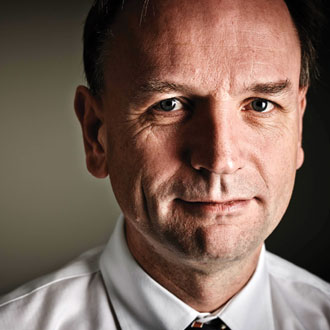Exclusive NHS England chief executive Simon Stevens has called today’s junior doctor strike ‘deeply regrettable’, as eight in 10 doctors walk out.
Speaking to Pulse in an exclusive interview today, the man in charge of running the NHS refused to be drawn on whether he thought the strike had been avoidable, but said today was ’a sad day’ both for the NHS and doctors.
In the first all-out doctors’ strike in NHS history, junior doctors walked out of routine and emergency care at 8am Tuesday morning, with further action due to take place during Wednesday.
Mr Stevens told Pulse: ‘I think most of us regard it as a very sad day both for the NHS and the medical profession when we are seeing tens of thousands of operations postponed, a hundred thousand outpatient appointments delayed.
‘This is having real consequences for patients and it is deeply regrettable.’
His comments come as statistics unveiled by NHS England showed that the turnout for Tuesday’s action was 78%, although this figure also includes sickness and other forms of absence. This compares with 88% during the last strike day in March.
NHS England said the latest data, ‘as at 0900hrs, indicates that 78% (21,608) of junior doctors who were expected to be working have not reported for duty today – this includes other forms of absence not just industrial action such as sickness’.
Ahead of the strike, NHS England told the public that there would be ‘extra primary care and GP response/appointment availability’ during the two strike days.
When asked what the extra resources were, NHS England said this was up to each region.
The only region to return Pulse’s request for information, NHS England in London, said: ’On Tuesday and Wednesday, there will be 4,100 extra appointments available in extended primary care, for example through primary care hubs across London.
’This is on top of appointments provided in routine GP opening hours. These appointments can be booked via the practices in the local area, or through calling 111.’
The spokesperson clarified that these were additional appointments just for the strike period but declined to say how much this was costing.
Junior doctors are protesting against the imposition of a new proposed contract that would increase plain time working on Saturdays to make the Government’s seven-day NHS manifesto pledge financially viable.
Mr Stevens had previously said it was ‘right’ to say a junior doctor contract should be implemented now, speaking to ITV in February.
An embattled walkout
Health secretary Jeremy Hunt is coming under pressure from opposition politicians to withdraw the contract imposition, but is staunchly defending his stance.
The strike action during Tuesday and Wednesday is backed by a BMA ballot, in which 98% of junior doctors supported strike action, including a potential all-out strike.
Talks between the Government and BMA broke down over the issue of evening and weekend pay, with the Government refusing to step back from its decision to remove ‘unsociable hours’ pay premiums from Saturdays and weekday evenings.
The BMA is also taking the Government to judicial review, arguing that ministers failed to carry out an equality impact assessment before the imposition.
A BBC poll of the public showed 57% are still in support of junior doctors striking this week, but this was down from 65% in March.

















